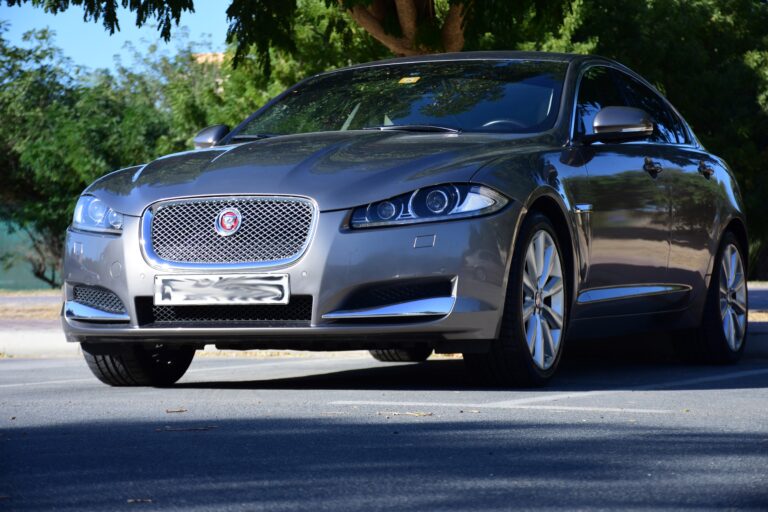Top European Car Brands: A Comprehensive Guide to Automotive Excellence
Top European Car Brands: A Comprehensive Guide to Automotive Excellence cars.truckstrend.com
Introduction: The Enduring Allure of European Automotive Excellence
European car brands have long stood as titans in the global automotive industry, synonymous with a rich heritage of innovation, meticulous engineering, opulent luxury, and exhilarating performance. From the winding roads of the Italian Alps to the precision-engineered autobahns of Germany, European manufacturers have consistently pushed the boundaries of design, technology, and driving dynamics. Their vehicles are not merely modes of transportation; they are statements of style, testaments to craftsmanship, and embodiments of national character. This article delves deep into the world of top European car brands, exploring what sets them apart, their unique contributions, and what to consider when choosing one of these automotive masterpieces. Understanding these brands is crucial for anyone seeking to appreciate the pinnacle of global automotive design and engineering.
Top European Car Brands: A Comprehensive Guide to Automotive Excellence
Germany: Precision Engineering and Unrivaled Luxury
Germany is often considered the epicenter of automotive engineering, boasting a lineup of brands celebrated for their precision, robustness, and technological advancement.
- Mercedes-Benz: A pioneer in the automotive world, Mercedes-Benz is synonymous with luxury, comfort, and cutting-edge technology. Known for their elegant design and innovative safety features, their range spans from sophisticated sedans (E-Class, S-Class) and versatile SUVs (GLC, GLE) to high-performance AMG models. Mercedes-Benz sets benchmarks in interior refinement and advanced driver-assistance systems.
- BMW: The Bavarian Motor Works, or BMW, lives by its motto "The Ultimate Driving Machine." Renowned for their sporty handling, powerful engines, and driver-centric cockpits, BMW offers a dynamic driving experience. Their lineup includes the iconic 3 Series and 5 Series sedans, a growing range of X-series SUVs, and the high-performance M division. BMW is also a leader in electric vehicle technology with its "i" sub-brand.
- Audi: Part of the Volkswagen Group, Audi is celebrated for its sophisticated design, quattro all-wheel-drive system, and luxurious interiors featuring advanced infotainment. Audi vehicles often present a sleek, understated elegance combined with powerful performance. Models like the A4, A6, Q5, and the high-performance RS variants embody their commitment to "Vorsprung durch Technik" (Progress through Technology).
- Porsche: An icon of sports car manufacturing, Porsche is revered for its legendary 911, Boxster, Cayman, and the more recent Panamera and Cayenne/Macan SUVs. Porsche perfectly blends everyday usability with thrilling performance, precise handling, and a distinctive design language. Their engineering prowess is evident in every detail, making them a dream for driving enthusiasts.
- Volkswagen: As the "people’s car," Volkswagen is Europe’s largest automaker and a global giant. While not always in the luxury segment, VW is known for its reliable, well-built, and practical vehicles like the Golf, Passat, and Tiguan. They offer excellent value, solid engineering, and increasingly sophisticated technology, underpinning many other brands within the VW Group.

Italy: Passion, Artistry, and Breathtaking Performance
Italian car brands evoke emotion, passion, and unparalleled beauty. They are often less about practicality and more about the visceral driving experience and artistic design.
- Ferrari: Perhaps the most famous luxury sports car brand globally, Ferrari is the epitome of speed, exclusivity, and racing heritage. Each Ferrari is a work of art, meticulously crafted with powerful engines and breathtaking designs. Owning a Ferrari is about joining an elite club and experiencing unparalleled automotive passion.
- Lamborghini: Known for its audacious, aggressive designs and stratospheric performance, Lamborghini creates supercars that demand attention. From the iconic Countach to modern marvels like the Huracán and Aventador, and the revolutionary Urus SUV, Lamborghinis are raw, untamed beasts that offer an electrifying driving experience.
- Maserati: Maserati offers a blend of Italian luxury, elegant design, and sporting prowess. While perhaps not as extreme as Ferrari or Lamborghini, Maseratis provide a unique blend of comfort and performance with distinctive styling and a captivating exhaust note. Models like the Ghibli, Quattroporte, and Levante SUV embody their blend of elegance and sportiness.
- Alfa Romeo: With a rich racing heritage, Alfa Romeo is celebrated for its distinctive styling, engaging driving dynamics, and passionate character. Alfas are known for their beautiful designs, lively engines, and a driving feel that connects the driver to the road. Models like the Giulia and Stelvio represent a resurgence of the brand’s sporting spirit.
- Fiat: As a cornerstone of the Italian automotive industry, Fiat is known for its small, stylish, and practical city cars, most notably the iconic Fiat 500. Fiat vehicles offer charm, fuel efficiency, and ease of maneuverability, perfect for urban environments.


United Kingdom: Heritage, Refinement, and Sporting Prowess
British car brands are characterized by a deep sense of tradition, exquisite craftsmanship, and often, a touch of eccentric charm.
- Rolls-Royce: The pinnacle of automotive luxury, Rolls-Royce vehicles are bespoke masterpieces, hand-built to the highest standards. Synonymous with unparalleled comfort, serene quietness, and opulent interiors, a Rolls-Royce is more than a car; it’s a statement of ultimate prestige and refinement.
- Bentley: Offering a blend of performance and ultra-luxury, Bentley cars provide a more driver-focused experience than Rolls-Royce, while still maintaining supreme comfort and exquisite craftsmanship. Models like the Continental GT and Bentayga SUV embody their blend of power, elegance, and exclusivity.
- Aston Martin: Immortalized by James Bond, Aston Martin builds elegant, powerful grand tourers and sports cars. They are known for their timeless design, luxurious interiors, and captivating exhaust notes, offering a sophisticated and exhilarating driving experience.
- Land Rover: A global leader in luxury SUVs and off-road vehicles, Land Rover is synonymous with capability, ruggedness, and versatility. From the iconic Defender to the luxurious Range Rover, these vehicles excel in tackling challenging terrain while providing exceptional comfort and refinement.
- Jaguar: Known for its sleek designs, luxurious interiors, and sporty performance, Jaguar combines British elegance with dynamic driving. Their sedans, sports cars, and SUVs offer a distinctive blend of comfort, style, and engaging performance.
- McLaren: A relatively young but highly respected supercar manufacturer, McLaren draws heavily from its Formula 1 heritage. Their cars are engineered for extreme performance, lightweight construction, and unparalleled track capabilities, offering a pure, unadulterated driving experience.
- Mini: An iconic British brand (now owned by BMW), Mini is celebrated for its compact size, go-kart-like handling, and customizable styling. Modern Minis retain the charm of the original while offering contemporary technology and safety.
France: Innovative Design and Comfort-Centric Engineering
French car brands often prioritize innovative design, comfort, and practical solutions, alongside a flair for the avant-garde.
- Peugeot: A core French brand, Peugeot is known for its stylish designs, comfortable interiors, and engaging driving dynamics. Their modern lineup, including popular SUVs (3008, 5008) and practical hatchbacks (208, 308), offers a blend of efficiency, technology, and distinctive French flair.
- Citroën: Citroën has a history of groundbreaking innovation, particularly in suspension technology, prioritizing ride comfort. Their vehicles often feature unique, quirky designs and emphasize a relaxed, comfortable driving experience, as seen in models like the C3 and C5 Aircross.
- Renault: One of France’s largest automakers, Renault produces a wide range of vehicles, from small city cars (Clio) to family SUVs (Captur, Kadjar) and electric vehicles (Zoe). Renault is known for its practical, stylish, and increasingly technologically advanced offerings, with a strong presence in European markets.
- Bugatti: While French in origin and design, Bugatti is now part of the Volkswagen Group and represents the absolute pinnacle of hypercar engineering and exclusivity. Their vehicles, like the Veyron and Chiron, are technological marvels, pushing the boundaries of speed, power, and luxury, often with price tags in the multi-millions.
Sweden: Safety, Sustainability, and Human-Centric Design
Sweden’s primary automotive export, Volvo, has carved a niche based on strong principles.
- Volvo: Volvo is synonymous with safety, having pioneered numerous safety innovations throughout its history. Beyond safety, Volvo is known for its minimalist Scandinavian design, comfortable and ergonomic interiors, and a strong commitment to sustainability and environmental responsibility. Their range of elegant sedans (S60, S90), versatile wagons (V60, V90), and popular SUVs (XC40, XC60, XC90) offers a refined and secure driving experience.
Key Considerations When Investing in a European Car
Choosing a European car involves more than just admiring its badge. Here are crucial factors to weigh:
- Reliability and Maintenance: While European cars are built to high standards, some models, particularly older luxury and performance vehicles, can be more complex and expensive to maintain than their Asian counterparts. Research specific models’ reliability ratings and understand potential service costs.
- Cost of Ownership: This includes not just the purchase price but also insurance, fuel economy, and depreciation. High-end European cars often come with higher insurance premiums and quicker depreciation in the initial years.
- Driving Experience: European cars are generally lauded for their superior driving dynamics, precise steering, and refined ride quality. Consider your driving style and preferences – do you prioritize comfort, sportiness, or a balance of both?
- Technology and Features: European brands are at the forefront of automotive technology, offering advanced infotainment systems, sophisticated driver-assistance features, and innovative safety systems.
- Resale Value: While some premium European brands hold their value well, others can depreciate faster. Popular mass-market models often have stable resale values.
- Environmental Impact: With increasing focus on sustainability, many European brands are leading the charge in electric vehicle (EV) development and hybrid technologies. Consider your environmental footprint and charging infrastructure availability.
The Road Ahead: Challenges and Innovations
The European automotive industry faces significant transformations. The shift towards electrification is paramount, with brands investing billions into developing new EV platforms and battery technology. Autonomous driving capabilities are another major focus, promising safer and more convenient travel. Sustainability in manufacturing and supply chains is also a growing concern. While facing competition from emerging markets and tech giants, European brands are leveraging their deep engineering expertise and design heritage to lead these changes, ensuring their continued relevance and innovation for decades to come.
Practical Advice for Choosing Your European Dream Car
- Define Your Needs: What’s your primary use? Daily commute, family transport, weekend thrills?
- Set a Budget: Be realistic about purchase price, insurance, maintenance, and fuel.
- Research Thoroughly: Look at reviews, reliability reports (e.g., JD Power, Consumer Reports), and owner forums for specific models you’re interested in.
- Test Drive Extensively: Drive various models on different road conditions. Pay attention to comfort, handling, acceleration, braking, and visibility.
- Consider New vs. Used: Used European luxury cars can offer great value, but ensure a pre-purchase inspection by a trusted mechanic, especially for older models.
- Understand Trim Levels and Options: European cars often have extensive option lists. Decide what features are essential for you.
- Factor in Local Support: Ensure there’s readily available dealership and service support in your area for your chosen brand.
Conclusion: A Legacy on Wheels
The top European car brands represent a diverse tapestry of automotive excellence, each weaving a unique narrative of innovation, craftsmanship, and driving passion. From Germany’s precision engineering to Italy’s artistic flair, the UK’s refined luxury, France’s design ingenuity, and Sweden’s unwavering commitment to safety, these brands continue to shape the global automotive landscape. Investing in a European car is more than just buying a vehicle; it’s embracing a legacy of quality, performance, and unparalleled driving enjoyment that stands the test of time.
Table: Overview of Top European Car Brands (Representative Data)
Please note: "Representative Starting Price Range (USD)" is highly variable and depends on model, trim, region, and current market conditions. These figures are illustrative for entry-level models within each brand’s typical new car lineup and can fluctuate significantly.
| Brand | Country of Origin | Primary Focus | Key Strengths | Representative Starting Price Range (USD) |
|---|---|---|---|---|
| Audi | Germany | Luxury, Technology, AWD | Sophisticated design, Quattro AWD, tech-rich interiors | $40,000 – $70,000+ |
| BMW | Germany | Performance, Driving Dynamics | Sporty handling, powerful engines, luxury | $45,000 – $80,000+ |
| Mercedes-Benz | Germany | Luxury, Comfort, Innovation | Elegant design, advanced tech, refined comfort | $45,000 – $80,000+ |
| Porsche | Germany | Sports Cars, Performance Luxury | Blistering performance, precise handling, iconic design | $65,000 – $120,000+ |
| Volkswagen | Germany | Mass Market, Quality, Versatility | Reliability, practical design, broad appeal | $25,000 – $45,000+ |
| Ferrari | Italy | Supercar, Exclusivity | Unmatched performance, artistic design, heritage | $250,000 – $500,000+ |
| Lamborghini | Italy | Supercar, Hypercar | Extreme performance, aggressive styling, exclusivity | $200,000 – $400,000+ |
| Maserati | Italy | Luxury, Performance | Distinctive styling, engaging sound, Italian flair | $80,000 – $120,000+ |
| Alfa Romeo | Italy | Sport Sedan/SUV, Design | Engaging driving, beautiful design, passionate | $45,000 – $70,000+ |
| Fiat | Italy | City Car, Compact | Stylish, compact, fuel-efficient | $20,000 – $30,000+ |
| Rolls-Royce | UK | Ultra-Luxury, Bespoke | Unparalleled luxury, craftsmanship, prestige | $350,000 – $500,000+ |
| Bentley | UK | Ultra-Luxury, Performance | Blends luxury with powerful performance | $200,000 – $300,000+ |
| Aston Martin | UK | Luxury Sports, Grand Tourer | Elegant design, powerful engines, British charm | $150,000 – $250,000+ |
| Land Rover | UK | Luxury SUV, Off-Road | Off-road capability, luxury, versatility | $50,000 – $100,000+ |
| Jaguar | UK | Luxury, Performance, Design | Sleek design, sporty handling, refined interior | $50,000 – $80,000+ |
| McLaren | UK | Supercar, Track-focused | Extreme performance, lightweight, F1 heritage | $200,000 – $400,000+ |
| Mini | UK (BMW Group) | Compact, Stylish, Fun | Go-kart handling, customizable, iconic design | $25,000 – $40,000+ |
| Peugeot | France | Mass Market, Design, SUV | Stylish design, comfortable, practical | $28,000 – $45,000+ |
| Citroën | France | Comfort, Innovative Design | Unique styling, focus on ride comfort | $25,000 – $40,000+ |
| Renault | France | Mass Market, EV, Practical | Practical, stylish, strong EV focus | $22,000 – $40,000+ |
| Bugatti | France (VW Group) | Hypercar, Ultimate Performance | Unrivaled speed, exclusivity, engineering marvel | $3,000,000 – $5,000,000+ |
| Volvo | Sweden | Safety, Sustainability, Luxury | Pioneering safety, minimalist design, comfort | $40,000 – $70,000+ |
Frequently Asked Questions (FAQ)
Q1: Are European cars expensive to maintain?
A1: Generally, yes, especially luxury and performance European brands. This is due to the cost of specialized parts, advanced technology, and often higher labor rates at authorized service centers. However, mainstream brands like Volkswagen or Volvo can have maintenance costs comparable to premium Asian brands.
Q2: Which European car brand is the most reliable?
A2: Reliability varies significantly by brand and even by specific model year. While brands like Lexus (Japanese) often top reliability surveys, some European brands, particularly Volvo and Volkswagen (certain models), consistently perform well. It’s crucial to check independent reliability ratings for the specific model you’re considering.
Q3: Why are European cars so popular despite potentially higher costs?
A3: European cars are popular for their exceptional driving dynamics, sophisticated engineering, luxurious interiors, distinctive designs, and strong brand prestige. They offer a unique blend of performance, comfort, and advanced technology that many buyers find worth the investment.
Q4: Are European cars good for daily driving?
A4: Absolutely. Many European brands, especially those focused on the mass market (VW, Peugeot, Renault) or luxury comfort (Mercedes-Benz, Volvo), produce excellent vehicles for daily commuting. Even performance brands offer models designed for everyday usability, albeit with a sportier edge.
Q5: What’s the main difference between German and Italian car brands?
A5: German brands (e.g., BMW, Mercedes-Benz, Audi) are typically known for their precision engineering, logical design, and balanced performance, often prioritizing efficiency and technology. Italian brands (e.g., Ferrari, Lamborghini, Alfa Romeo) are renowned for their emotional appeal, artistic design, raw performance, and a more visceral, passionate driving experience.
Q6: Are electric European cars a good investment?
A6: Yes, European brands are heavily investing in electric vehicle (EV) technology, offering compelling models with long ranges, fast charging capabilities, and luxurious features. As infrastructure improves and technology advances, European EVs are becoming increasingly attractive and competitive, often leading the market in terms of innovation and design.




